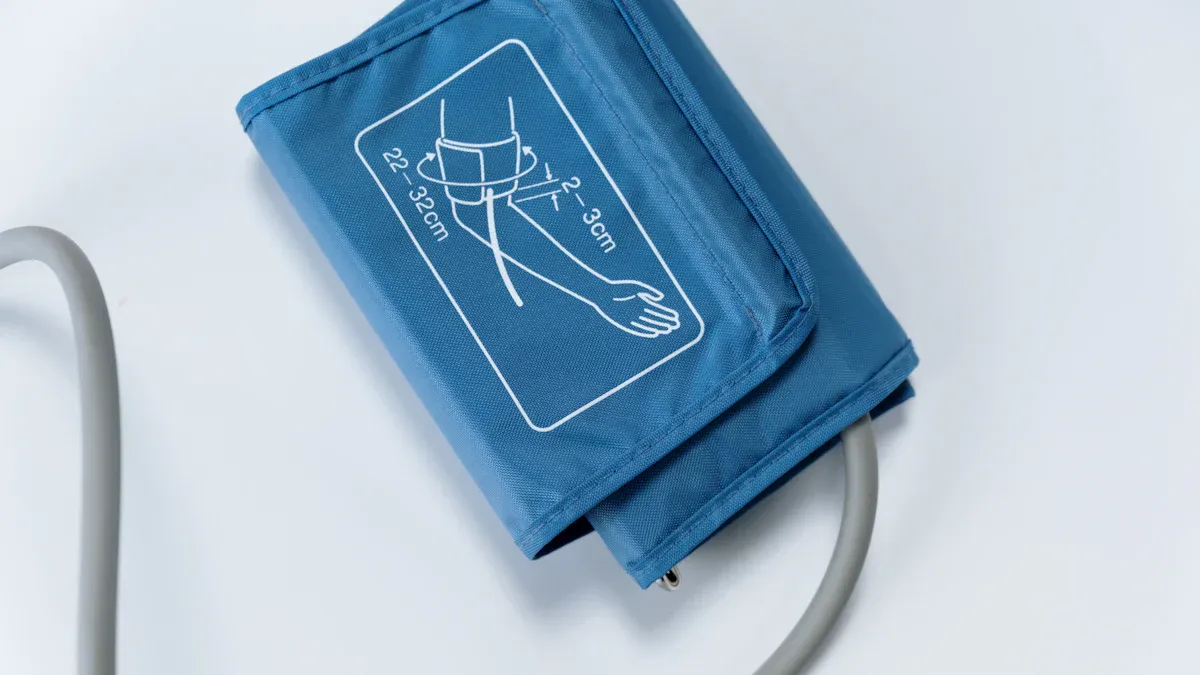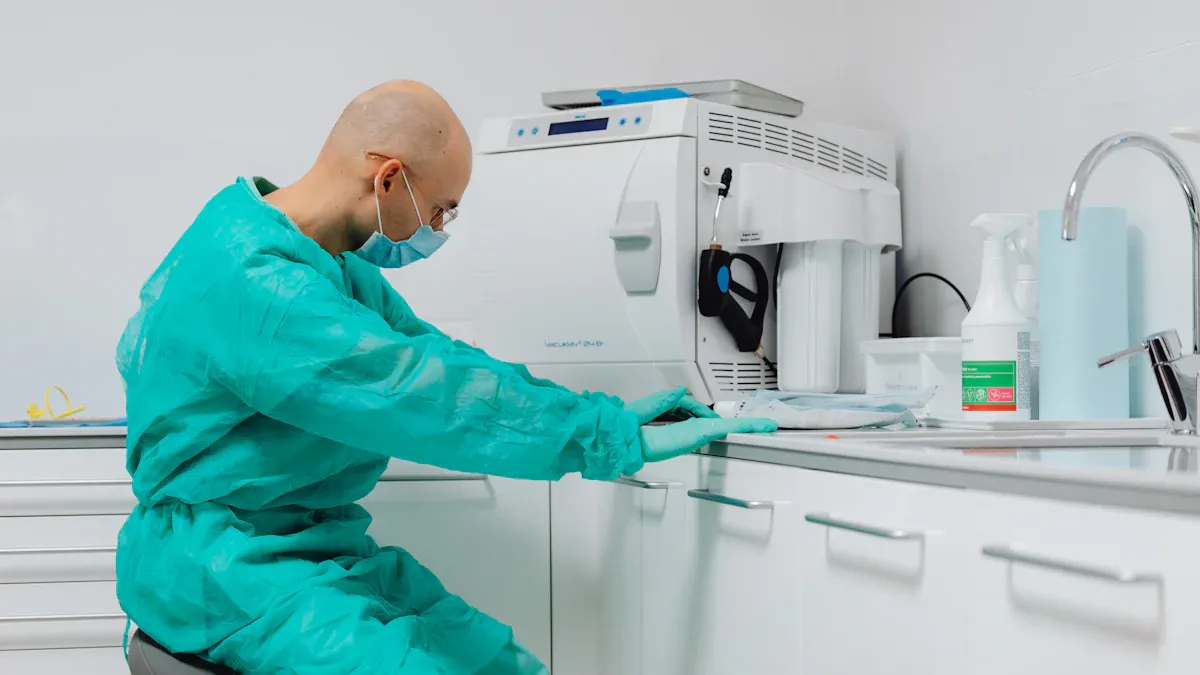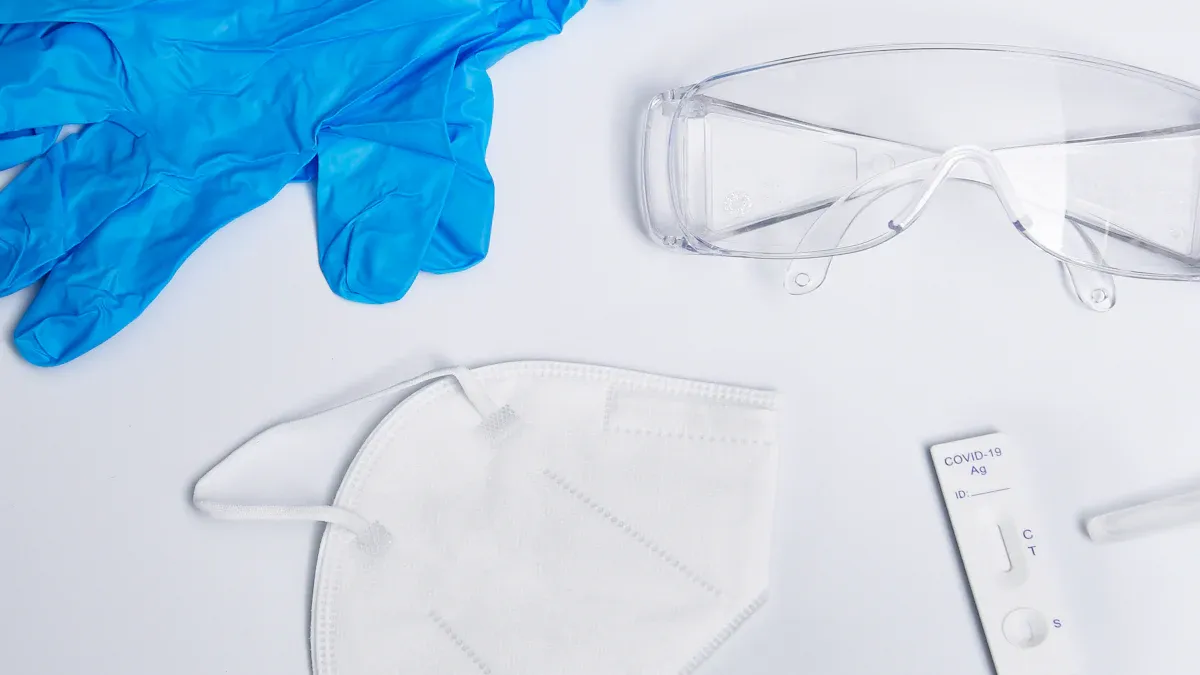ISO 13485 Certification Explained for Medical Device Manufacturers

ISO 13485 certification is a global standard for quality systems, particularly important for ISO 13485 certified medical nitinol tubing manufacturers. If you produce medical parts like nitinol tubing, achieving this certification demonstrates that your products are safe and reliable. Adhering to ISO 13485 helps reduce the risks of recalls and ensures compliance with FDA regulations. Companies with robust quality systems experience fewer complaints and can deliver more—up to 92%. For ISO 13485 certified medical nitinol tubing manufacturers, this certification builds trust and enhances market success.
Key Takeaways
ISO 13485 certification proves your medical devices are safe to use.
It helps you follow global quality rules and standards.
Getting certified lowers the chance of recalls and legal problems.
This protects your company’s name and helps save money.
ISO 13485 shows customers and partners you care about safety.
Certification helps you sell products in other countries easily.
It also helps your business grow in global markets.
Regular training and checks keep your system working well.
These steps improve your quality management and ensure compliance.
Understanding ISO 13485 Certification

Overview of ISO 13485:2016 Certification
ISO 13485:2016 is the newest version of a global standard. It helps medical device makers create safe and reliable products. This version focuses on managing risks and keeping devices clean. It also explains what leaders in companies must do.
ISO 13485:2016 has eight main sections:
What the standard covers
Rules it follows
Important terms
How to manage quality
Leader responsibilities
Managing resources
Making products
Checking and improving
These sections help companies build strong systems that meet worldwide rules. More companies are using this certification. In 2020, 25,656 certificates were active, and in 2021, 27,229 were active.
Year | Certificates Active |
|---|---|
2020 | 25,656 |
2021 | 27,229 |
Key Principles of Quality Management in ISO 13485
ISO 13485 focuses on key ideas to improve product quality. These include thinking about risks, controlling processes, and always improving. Following these ideas helps reduce problems with medical devices.
The standard also stresses keeping records and using math tools. Companies must write down steps for design changes and testing. Math methods help check if processes work well and stay consistent.
ISO 13485 Requirement | Important Details |
|---|---|
Extra records for testing plans, including math tools | |
Production & service provision | Written steps for testing, including sampling and rechecking |
Analysis of data | Steps for using math tools |
These ideas help companies follow rules and work better.
Applicability to Medical Device Manufacturers
ISO 13485:2016 works for many medical device makers, like those making nitinol tubing. It is used worldwide, including in the USA, Canada, Europe, Japan, and Australia. This makes it easier for certified companies to sell products globally.
Country |
|---|
Europe |
UK |
USA |
Canada |
Australia |
Japan |
Singapore |
Malaysia |
For medical device makers, ISO 13485 shows they care about safety and quality. It helps them work with suppliers and other companies. Certification makes your business a trusted name in the industry.
Importance of ISO 13485 Certification for Medical Device Manufacturers
Ensuring Regulatory Compliance and Market Access
ISO 13485:2016 helps companies follow rules and sell globally. It aligns your processes with international quality standards. This ensures your devices meet strict laws and guidelines. Certification proves to regulators and partners that you follow trusted practices.
Impact Area | Description |
|---|---|
Regulatory Compliance | Helps companies follow medical device laws and standards. |
Compliance Assurance | Shows stakeholders you meet global quality standards. |
Market Access | Recognized worldwide, speeding up product approvals. |
Regulatory Approval |
Getting ISO 13485:2016 gives you an advantage over competitors. It shows your focus on quality and following rules. This sets your business apart in the market. Countries like the USA, Europe, and Japan accept this certification. It simplifies approvals and helps you grow globally.
Enhancing Product Quality and Safety
ISO 13485:2016 ensures your products are safe and high-quality. By following its rules, you can find and fix risks early. This lowers the chance of defects or recalls, protecting customers and your reputation.
Benefit | Description |
|---|---|
Improved product safety and quality | |
Legal compliance | Helps follow local laws, avoiding legal problems. |
Empirical basis for decisions | Uses data to make better choices and reduce risks. |
Using ISO 13485:2016 creates a system for reliable products. This improves how your devices work and builds customer trust. Better products mean happy customers and repeat sales. This helps your business succeed long-term.
Building Trust with Customers and Stakeholders
ISO 13485 certification shows you care about safe, effective devices. This builds trust with customers, regulators, and partners. Following ISO 13485 gives clear steps for making quality products, boosting your credibility.
Certification shows your commitment to quality and rules, attracting partners.
It sets you apart in the market, gaining customer and partner trust.
Meeting ISO 13485 proves you value safety and reliability, improving your reputation.
By following ISO 13485:2016, you meet rules and build trust. This trust strengthens relationships with customers and partners. It helps your business grow and innovate in the medical device field.
Competitive Advantages for ISO 13485 Certified Medical Nitinol Tubing Manufacturers
Getting ISO 13485:2016 certification gives you a big advantage. It shows your focus on quality, safety, and following rules. As a medical nitinol tubing maker, it helps you become a trusted choice for customers everywhere.
1. Meeting Market Needs
Healthcare providers want safe and reliable products. The need for ISO-certified tubing is growing fast. This certification matches your products to global rules, making them more appealing. It also lets you sell in international markets by meeting strict medical device standards.
Evidence Type | Description |
|---|---|
Demand for ISO-certified tubing | More buyers want tubing that meets ISO standards. |
Compliance Importance | Following ISO 13485 helps lead the market. |
R&D Investment | Companies like EUROFLEX improve products through research. |
Supply Chain Diversification | 60% of U.S. companies use multiple suppliers needing ISO-certified tubing. |
2. Building Customer Trust
Certification proves your tubing is safe and high-quality. This builds trust with customers who use it for important medical tasks. It also shows you can deliver reliable products, lowering risks like recalls or failures.
Tip: Certification is like a badge showing your dedication to safe devices.
3. Standing Out from Competitors
Having ISO 13485:2016 certification makes you different from competitors without it. It shows you care about quality and rules, attracting more business. Many companies now prefer ISO-certified suppliers to avoid risks. This positions your business as a leader in the industry.
4. Encouraging Innovation
Certification lets you create new products while following rules. You can improve old designs and invent new ones without losing focus on safety. Companies like EUROFLEX use their certifications to grow through research and development.
5. Strengthening Supply Chain Partnerships
Many manufacturers want their suppliers to have ISO 13485 certification. This ensures consistent quality and compliance. By meeting this need, you build strong partnerships and improve your role in the supply chain.
In today’s market, ISO 13485 certified medical nitinol tubing manufacturers have many benefits. Certification boosts your reputation and helps meet the demand for safe, high-quality products. Investing in ISO 13485:2016 certification secures your spot as a trusted leader in the medical device world.
Benefits of ISO 13485 Certification for Nitinol Tubing Manufacturers
Meeting Strict Quality Standards for Medical Components
ISO 13485 certification ensures your nitinol tubing meets top-quality standards. It focuses on strict testing and quality checks for safety. For example, companies like AccuPath test every batch of tubing carefully. These tests check size, strength, and biocompatibility to ensure perfect performance.
To meet these high standards, follow these steps:
Check how these risks affect performance.
Reduce risks during the product's life.
Key Factor | Explanation |
|---|---|
Builds a quality system for medical devices. | |
Internal Audits | Shows proof of following quality rules. |
Statistical Sampling | Uses math to keep production quality high. |
By following these steps, you improve quality and meet global rules.
Improving Teamwork with OEMs and Suppliers
ISO 13485 certification helps you work better with OEMs and suppliers. Certified companies show they care about quality and reliability. This builds trust in the supply chain. Many OEMs prefer ISO-certified suppliers for consistent quality and rule-following.
This certification also makes teamwork easier. Clear records and standard processes help match your goals with partners. For example, ISO 13485 focuses on risk control and sampling, ensuring reliable results for partners.
Tip: Certification boosts your reputation and makes you a top supplier choice.
Encouraging Innovation While Staying Compliant
ISO 13485 certification lets you create new products while following rules. Using user-focused design (UCD), you can make better products that meet standards. Keeping detailed records of designs and tests ensures compliance. Usability testing also proves your products meet safety needs.
Risk control is key to safe innovation. Finding and fixing risks early leads to better products. This method supports creativity and ensures tubing works well in medical uses.
By mixing innovation with compliance, you stay competitive and earn customer trust.
Improving How You Work and Managing Risks
ISO 13485 certification helps make your work smoother and safer. It gives clear steps to improve processes and lower risks. This ensures your medical devices meet global safety rules.
A big part of ISO 13485 is risk management. You can find risks during design, production, and after products are sold. By checking how likely and serious these risks are, you can plan ways to reduce them. Writing down these steps shows you follow the rules. Watching for problems regularly helps keep your products safe and high-quality.
Here’s how ISO 13485 makes work better:
Metric | How It Helps |
|---|---|
Makes safer, better-performing products. | |
Follow rules easily | Helps meet health authority requirements faster. |
Sell in more places | Opens doors to global markets. |
Work more efficiently | Cuts waste, saves money, and improves processes. |
Fewer recalls and failures | Protects your reputation and saves money. |
Better records and tracking | Keeps everything organized and accountable. |
To handle risks well, follow these steps:
Find risks in your work.
Check how likely and serious they are.
Fix big risks with smart solutions.
Write down all risk-handling steps.
Watch product performance and update fixes as needed.
Using ISO 13485 makes your work better and protects your reputation. This certification shows you make safe, high-quality devices and helps your business grow.
The Process of Achieving ISO 13485 Certification

Conducting a Gap Analysis
The first step to get ISO 13485 certification is a gap analysis. This checks your current system against ISO rules. It shows where you meet the rules and where you don’t. This helps you plan how to fix any problems.
To do a gap analysis:
Compare your processes with ISO 13485 standards.
Find and write down areas that don’t meet the rules.
Make a plan to fix these gaps and assign tasks.
Measurable Outcome | Description |
|---|---|
Find where your system doesn’t meet ISO 13485. | |
Document Areas of Non-Compliance | Write down the specific problems. |
Develop an Action Plan | Plan fixes and assign tasks to your team. |
This step ensures your system matches ISO 13485 and prepares you for certification.
Optimizing Processes to Align with ISO 13485 Requirements
After finding gaps, the next step is improving your processes. You need to adjust your work to meet ISO 13485 rules. Regular checks, customer feedback, and reviews help track progress.
Internal checks show how well your processes work and what to fix.
Customer feedback helps you understand product quality and satisfaction.
Reviews by leaders ensure your system meets goals and rules.
These actions improve your system and ensure your devices are safe and reliable.
Training Employees and Stakeholders
Training is key to meeting ISO 13485 rules. It helps your team learn their roles in keeping quality high. Good training encourages better work and new ideas.
Special training programs focus on medical device needs. They teach your team about rules and best practices. By training your team, you help them support your certification goals.
Tip: Regular training keeps your team ready to follow ISO 13485 rules and succeed long-term.
Preparing for Certification Audits
Getting ready for ISO 13485 certification audits helps meet global rules. A clear plan reduces risks and builds confidence during audits. Use these steps to prepare well:
Do Internal Audits: Check your processes often to find and fix problems. These checks make sure your system follows ISO rules and gets you ready for outside reviews.
Train Your Team: Teach workers about ISO 13485 rules so they know their roles. When everyone works together, your company runs better and stays compliant.
Work with Auditors: Talk openly with auditors during the process. Answer their questions quickly to show you care about following the rules.
Tip: Good preparation avoids problems and makes audits easier.
Strategy | What It Does |
|---|---|
Internal Audits | Finds problems and checks if your system meets ISO rules. |
Staff Training | Helps workers understand their part in keeping quality high. |
Communication with Auditors | Builds trust by answering auditor questions and being transparent. |
By using these steps, you can handle audits confidently and show your focus on safe, reliable medical devices.
Overcoming Common Challenges in the Certification Process
Getting ISO 13485 certification can be tough, but knowing the common problems helps you fix them. Here are some challenges and ways to solve them:
Third-Party Software Issues: Outside vendors may give software for your work. Test it carefully to make sure it fits your system and follows the rules.
Meeting Auditor Needs: Auditors want clear records. Regular checks and keeping good notes help meet their expectations.
Software Updates: Changes in software can mess up validation. Use tools to track versions and make updates easier.
Keeping Records: Traceability is important for validation steps. Automated tools help track everything and stay compliant.
Challenge | How to Solve It |
|---|---|
Third-Party Software Issues | Test vendor software for risks and make sure it works with your system. |
Meeting Auditor Needs | Keep detailed records and do regular checks to meet auditor standards. |
Software Updates | Use tools to manage versions and make revalidation smoother. |
Keeping Records | Use automated tools to track every step and ensure compliance. |
Note: Planning ahead and sticking to ISO 13485 rules helps solve these problems.
By fixing these issues early, you can make the certification process easier and show your company’s dedication to making safe medical devices.
How ISO 13485 Certification Benefits Manufacturers and Customers
Showing Dedication to Quality and Excellence
ISO 13485 certification proves you care about making great medical devices. It ensures your processes follow strict global rules. By using a strong quality system, you can make safe and reliable products every time. Regular internal checks also show your promise to keep high standards.
Evidence Description | Key Points |
|---|---|
Strong Quality System | Ensures safety, reliability, and top quality. |
Regular Internal Checks | Shows commitment to keeping high standards. |
Getting ISO certification tells customers and partners you value safety and quality. This builds trust and helps you stand out in the medical device industry.
Tip: Certification improves product quality and boosts your reputation as a trusted maker.
Lowering Recalls and Legal Risks
ISO 13485 certification helps you find and fix problems early. By following its rules, you can reduce defects and meet safety laws. This lowers the chance of recalls, which can hurt your business and cost money.
Benefit | Description |
|---|---|
Risk Control | Helps find and manage risks during production. |
Legal Compliance | Ensures you follow safety laws, reducing legal troubles. |
By managing risks early, you avoid costly recalls and lawsuits. This saves money and builds customer trust in your products.
Improving Customer Trust and Loyalty
ISO 13485 certification shows customers your products are safe and high-quality. It proves you follow best practices and care about their safety. This builds trust, making customers happier and more loyal.
Certification shows you can deliver safe, reliable devices.
Customers trust your focus on safety and quality, improving your brand image.
Happy customers recommend your products, helping your business grow.
For customers, working with an ISO-certified company means peace of mind. They know you have systems to reduce risks and deliver great products every time.
Note: Happy customers are key to long-term success. ISO certification helps you earn their trust and loyalty.
Reaching New Markets and Growing Your Business
ISO 13485 certification helps medical device makers enter new markets. This global standard shows your products meet safety and quality rules. With certification, you can sell in places like Europe, the U.S., and Japan, where rules are strict.
Certification makes it easier to sell worldwide. Many countries need ISO compliance before allowing medical devices. Following these rules shows you care about safety and quality. This builds trust with regulators and customers, helping you enter markets faster.
Being ISO certified improves your reputation as a reliable company. Customers and partners see you as a trusted business that values quality. This trust attracts new clients and strengthens ties with current ones. In the medical field, safety and trust are very important.
ISO standards also help reduce risks like defects and recalls. By following these rules, you create systems to catch problems early. Fixing issues quickly protects your brand and keeps customers happy.
Benefit | What It Means |
|---|---|
Sell in More Countries | Certification is accepted globally, helping you reach new markets. |
Follow Rules Easily | Ensures your products meet strict laws, avoiding recalls and legal trouble. |
Build a Strong Reputation | Shows you care about safety and quality, earning customer trust. |
Lower Risks | Reduces defects and recalls, keeping customers satisfied and protecting your brand. |
Using ISO 13485 certification gives you an advantage. It helps you follow rules and reach new markets. This opens up chances to grow and succeed in the global medical device industry.
ISO 13485 certification is key for medical device makers, like those making nitinol tubing. It makes your quality system stronger and helps you work better. It also encourages constant improvement in how you do things. Getting certified lets you sell in more places, make safer products, and gain customer trust.
Tip: Getting ISO 13485 certification isn’t just about following rules. It’s a smart move to show you care about quality and new ideas. This sets your business apart as a top name in the medical device world.
Start your journey to certification and stay ahead of the competition today.
FAQ
What is the purpose of ISO 13485 certification?
ISO 13485 certification makes sure medical devices are safe and high-quality. It helps companies follow rules, lower risks, and gain trust from customers and partners.
How long does it take to achieve ISO 13485 certification?
It usually takes 6 to 12 months to get certified. The time depends on how ready your company is, how complex your processes are, and how fast you fix problems found during the audit.
Is ISO 13485 certification mandatory for medical device manufacturers?
Not all countries legally require ISO 13485 certification. But many places, like the EU and Canada, need it for product approval and selling in their markets.
Can small businesses achieve ISO 13485 certification?
Yes, small businesses can get ISO 13485 certification. The standard works for companies of any size. With good planning and resources, small businesses can meet its rules.
How often do you need to renew ISO 13485 certification?
You need to renew ISO 13485 certification every three years. Annual checks make sure you still follow the rules, and a full review happens at the end of the three years.
Tip: Being ready for audits helps you keep your certification without delays.
See Also
Understanding ISO 13485's Impact on FEP Tubing Production
Essential Insulation Barriers for Compliant Medical Devices
Comprehensive Steps for Effective Microcatheter Production
Nitinol Tubing's Transformative Effect on Medical Device Technology
Why Laser Cutting is Perfect for Nickel-Titanium Applications

